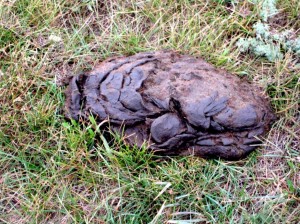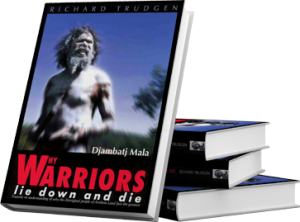Community Development Tip – December 2014

Building trust and relationships
Question:
“I expect I’ll be doing fly-in/out work as a doctor once I graduate. How should I go about forging links with the communities, given so little time to bond? With the need to build trust in relationships in order to communicate well, how can I best demonstrate that I’m here to listen and learn respectfully? Is it really a matter of time? Also, one person I spoke to said I should avoid being fitted into the kinship system, as that would constrain who I can deal with. You seem to advocate the opposite. Can you comment?”
Building Relationships and being Trusted
Building relationships with a group of strangers usually does take time but we can shortcut this process by getting across the gap that exists between any two cultures by preparing ourselves properly.
If I was in your shoes the first thing I would do is learn an Aboriginal language.
When you do this you will not only be learning an Original Australian language but you will also be learning some of the Original Australian cultures. At the same time, you will also start to learn how the people construct knowledge and thinking. Let me give you an example.
If you learn an Aboriginal Language you will learn very quickly that the original languages spoken in Australia have different pronouns than English and you will also learn these languages have a very complicated grammar structure; a grammar structure I still struggle with. They also have a very useful pronoun that groups ‘he, she and it’ into one word. Wouldn’t that be great in English?
Learning language increases your thinking power and your ability to see things from another point of view, so you start to see the world through different eyes; the People’s eyes. This learning is usually subtle as you start to discover and deal with a new language.
This will help you move out of a mainstream mindset and become more bicultural and recognise that all of us carry particular biases that are not always helpful when we meet people of another culture.
Finally, you will also discover how hard it is to learn and speak another language. This will help you have more latitude, understanding and respect for people who speak English as a second or even fifth language and get things wrong sometimes.
But more important than all this it will help you build that trust and relationship in a truly magical way.
Arnhem Land Had Changed
It was 1995 and I had just come back to Arnhem Land after being away for eight years due to ill health. I was visiting one of the local communities and sitting outside the local store waiting for my wife to come and pick me up.
As I sat down, there were groups of Yolngu kids coming to the store to buy food and drinks. They were clearly wagging school and the store attendant would give them a hard time as they were buying things, saying in English, “You will be in trouble”, or “I will call the principal, you should be at school” and other things like this. They took no notice of these English statements. It’s as if they went straight over their heads. They just continued to talk and chat amongst themselves which only made the Balanda store attendant more irate. It was an interesting experience to witness so I decided to turn it into an exercise in human dynamics.
There had been at least three groups of young children coming through all talking to each other in language and seemingly not acknowledging anyone or anything from the Balanda world except what they wanted to buy from the store. I was within 2 to 3 metres of these children and none of them had acknowledged me or seemed to recognise the fact that I was even there. Some Balanda had come to the store over this time and Yolŋu kids were treating them like they treated me and the Balanda store attendant, like we didn’t exist in their Yolŋu world.
I was very surprised by this because my past experience with Yolŋu kids was very different. They were usually very inquisitive about the new Balanda in their community.
Arnhem Land had changed and this was a sign that some of the communities were now experiencing Balanda overload, with outsiders coming into the communities in greater and greater numbers. It seemed little or no trust and relationship existed between the Yolŋu and the Balanda cultural groups from the perspective of these children. The groups were estranged from each other.
Like a Buffaloe’s “Calling Card”
The store in this particular community had a big grassy area out the front of it and it was clear that the buffaloes had come onto this grass during the night to eat, as they had left their “calling card” (pictured above). As I sat there soaking up this new experience, trying to understand it, I felt very sad and even a little hurt. The way these Yolŋu kids were relating to the other Balanda and I seemed no different to the way they were relating to the buffalo “calling card” left from the night before.
So now I decided to speak to the next group of children in Yolŋu Matha (their language) and see if it made a difference.
The next group come in talking to each other and ignoring me. The Balanda store worker went into her usual routine, throwing all sorts of harsh comments at them. The kids played their part in a game totally ignoring her and me while they just went on buying things that they wanted, talking very fast and organising their limited cash supply between each other so they could buy what they wanted. When they had finished their purchases I just said to them, “Nhämirri walal” / How are you guys?
The response was immediate and intense.
They turned to me saying, in their language of course, “Who are you, where do you come from?” In fact, they all came over to find out who this Balanda who was speaking their language. Questions came thick and fast, “Where do you live? Are you married? Do you have children”? At this time my wife arrived to pick me up. As I moved to the vehicle my new group of friends came with me. Now they wanted to meet my wife and to know all about her, where she worked and so on.
“Houston we have contact”. Trust and relationship building was immediate.
Questions kept coming. One of the questions was, “Who had adopted you (which Yolŋu person and Clan had adopted me)”, so they knew where to fit me into their world. As soon as they knew this they started to work out all the different relationships that existed between us. Trusted and friendship built in seconds.
Accepting Adoption into the kinship system
The other part of the Doctor’s question: “Also, one person I spoke to said I should avoid being fitted into the kinship system, as that would constrain who I can deal with. You seem to advocate the opposite. Can you comment?
Yes, I do advocate the opposite as you can see from my experience above. Although I will say don’t rush into it. There are some individual Yolngu, in every community, who try to adopt every Balanda that arrives. These are the wrong people to be adopted by. Wait till you develop a genuine relationship with someone and then they will ask you if you want to be adopted.
When this happens, if you are a female, you become their sister and shadow to all their relationships with all other Yolŋu across Arnhem Land and beyond.
This may mean that there are some people in an avoidance relationship with you. This has never been a problem for me and I have even had people in that avoidance relationship come up to me and shake my hand and many have worked in a close relationship with me. It just means in those times we need to show much greater respect towards that person. As a doctor, or any other person going to a community regularly, act objectively, sensitively and professionally at these times and it will not be a problem.
But start relationship building; learn an Aboriginal Language!
Richard Trudgen Nov 2014



